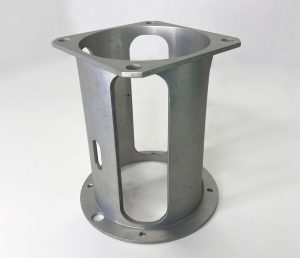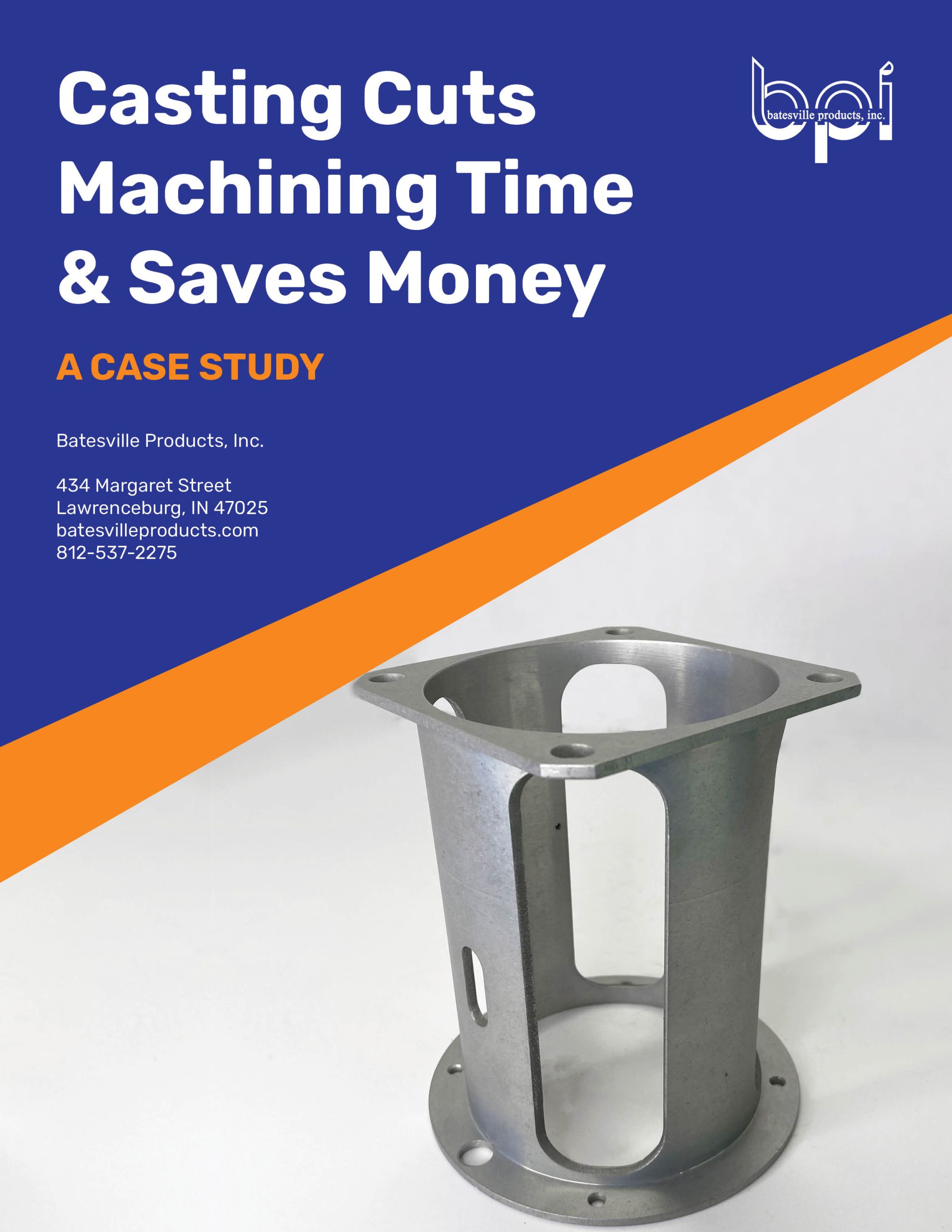This medical partner saved time and money by converting a complex machined product into a casting.
Here we have a component for blood analyzing equipment, used in the US armed forces medical division.
Originally, the customer was machining this part out of a solid piece of billet. As you can imagine – that took a lot of machine time!
The customer needed a more efficient manufacturing method that still provided highly accurate dimensions for final assembly.

The customer’s main benefit of switching to permanent mold was that permanent mold casting creates an accurate, near-net shape of the product. This made permanent mold casting a more efficient manufacturing method than machining from billet.
By first casting the product, we created a part that closely resembled the final product. Then, we added a quick CNC machining operation to ensure tight tolerances were met. Instead of loading a solid block of aluminum into the CNC machine, we loaded a casting that was already the correct shape. Therefore, the machining operation was quicker.
Secondary CNC machining guaranteed the new casting would fit into the assembled blood equipment exactly the same as their current product.
The manufacturing process for this part became more efficient. The customer saw ROI on their tooling costs in record time by limiting CNC machining.
The new casting replaced the machined product and assembled onto their medical equipment without a problem.
Unlike other manufacturing methods, permanent mold casting provided a dense, low-porosity component. Why’s this important in medical equipment? Low porosity means less likelihood of cleaners, blood samples, or other liquids from seeping into the equipment, impacting sanitation.

Aluminum castings with low porosity and fine grain structure are ideal for the medical industry.
At Batesville Products, we have experience manufacturing cart bases, heat sinks, pump enclosures, and structural components for MRI machines and scanners. See more examples of medical castings.